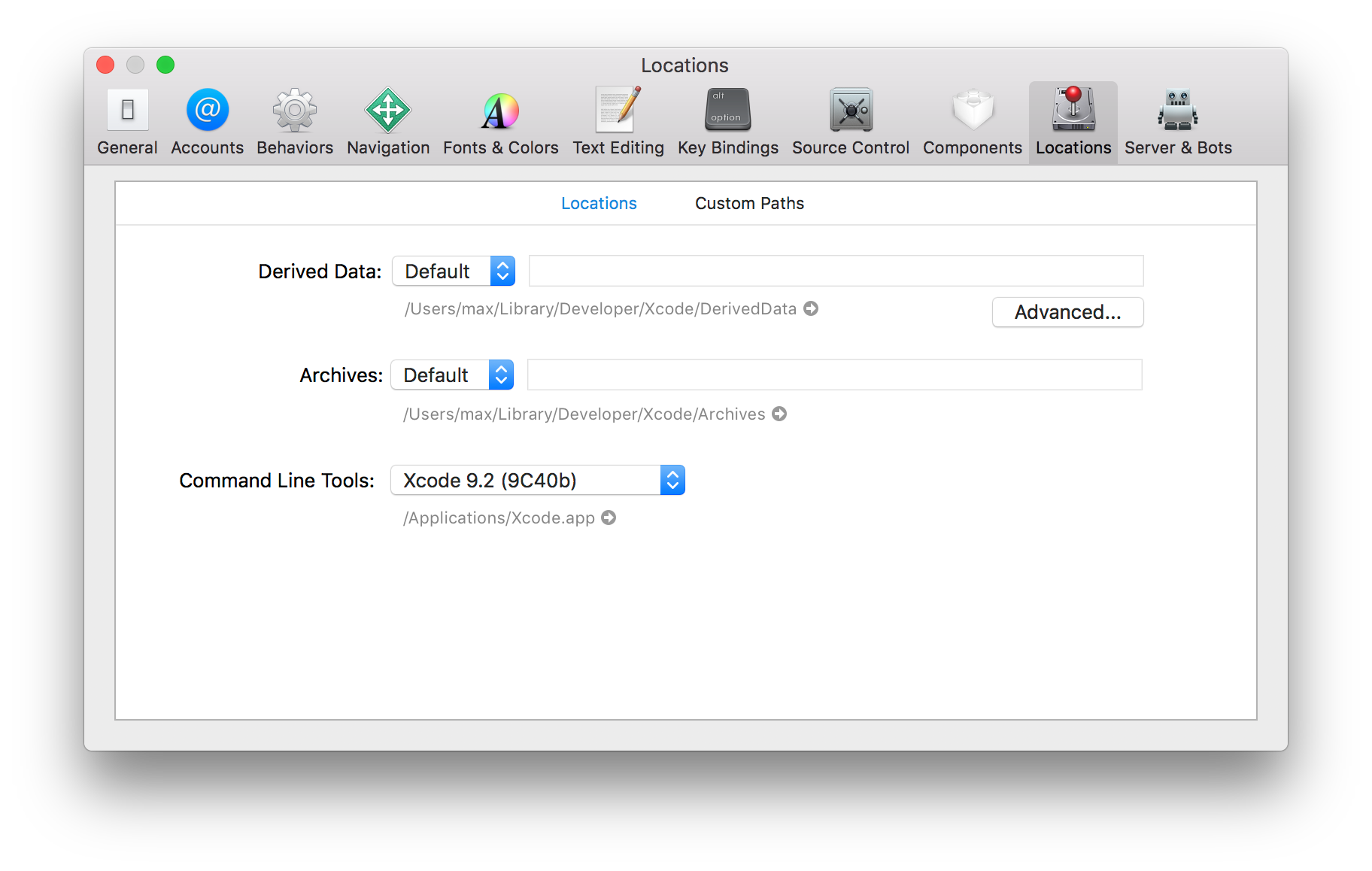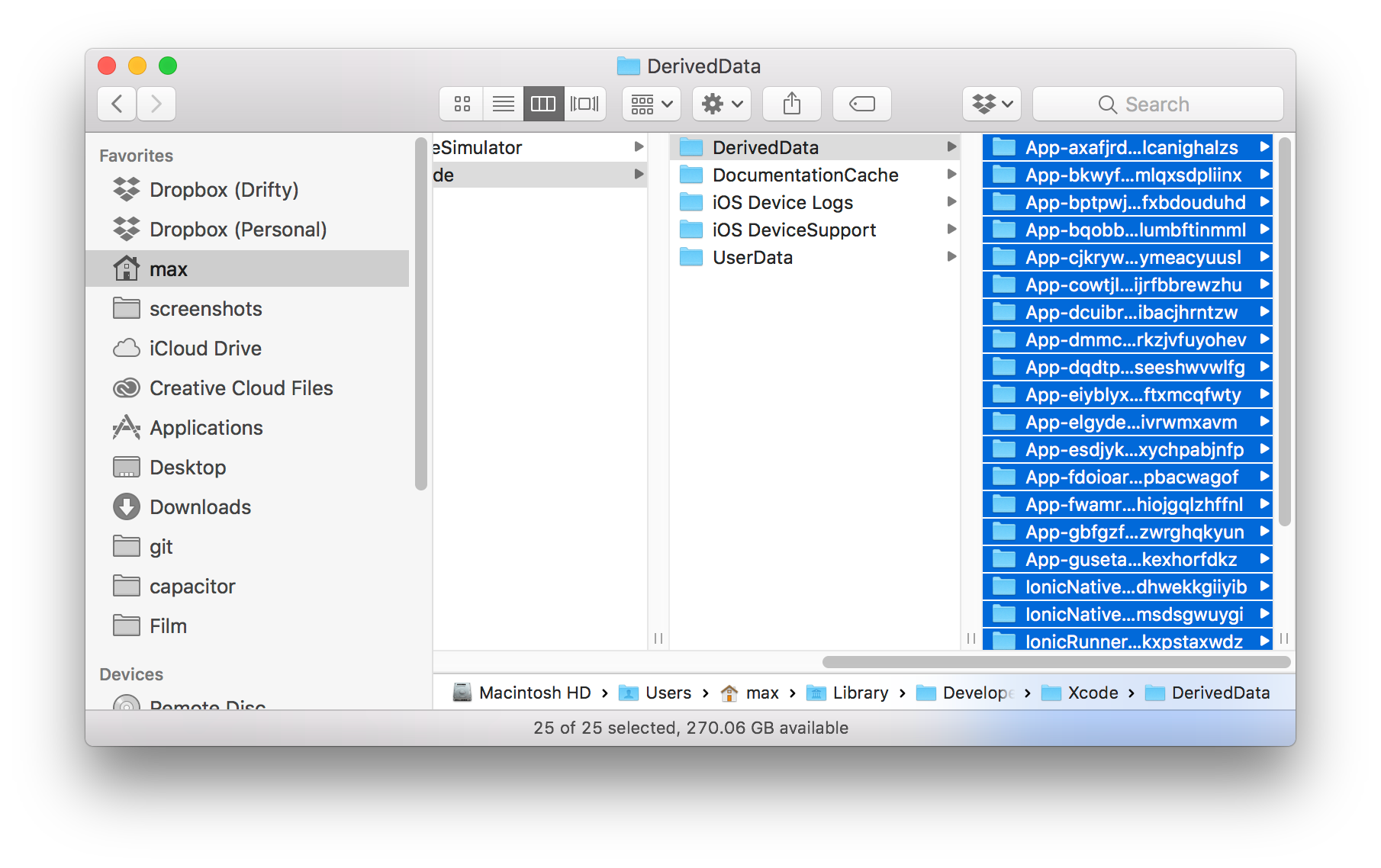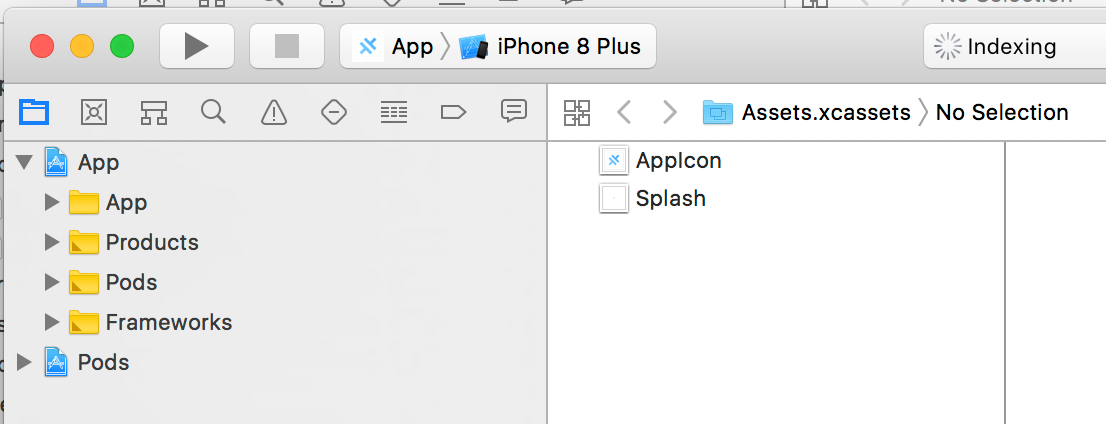iOS Troubleshooting Guide
Creating a 100% perfect native management tool is nearly impossible, and sooner or later you'll run into various issues with some part of the iOS workflow.
This guide attempts to document common iOS/Xcode issues with possible solutions.
iOS Toolbox
Every iOS developer learns a few common techniques for debugging iOS issues, and you should incorporate these into your workflow:
Google, Google, Google
Any time you encounter an issue with iOS, or Xcode, your first step should be to copy and paste the error into a Google search.
Capacitor uses the standard iOS toolchain, so chances are if you run into something, many iOS developers have as well, and there's a solution out there.
It could be as simple as updating a dependency, running clean, or removing Derived Data.
Clean/Rebuild
Cleaning and rebuilding can fix a number of build issues. Navigate to Product -> Clean Build Folder in the Xcode menu to clean your current build.
Removing Derived Data
Sometimes, Xcode clings to old, outdated build artifacts. To start fresh, you'll need to delete any Derived Data on disk.
To do this, open Xcode Preferences, choose the Locations tab, and click the small arrow next to your Derived Data path:

This opens a Finder window to the location of Xcode's temporary Derived Data.
Next, select all items in that directory and delete:

Finally, do a rebuild in Xcode.
Error: Sandbox not in sync with the Podfile.lock
This error can happen if CocoaPods hasn't been able to run to install your dependencies.
Run this to update your pods:
npx cap update ios
Perform a new build after running this command.
Indexing FOREVER
Xcode sometimes gets stuck indexing forever. This unfortunate situation looks like this:

The only solution is to Force Close Xcode (using Activity Monitor) and start it up again.
Apple Silicon: ffi Bus Error
If you're using an Apple Silicon-powered Mac, you might encounter something like this when running npx cap update:
[error] Analyzing dependencies
/Library/Ruby/Gems/2.6.0/gems/ffi-1.15.3/lib/ffi/library.rb:275: [BUG] Bus Error at 0x0000000000000000
ruby 2.6.3p62 (2019-04-16 revision 67580) [universal.arm64e-darwin20]
This is a CocoaPods bug related to ffi not installing on M1. For now, you need to have Rosetta installed, install ffi on a x86_64 architecture and run pod install using the simulated Intel architecture for the first time.
$ sudo arch -x86_64 gem install ffi
$ arch -x86_64 pod install
After that, running Capacitor should work as expected.
CocoaPods: Failed to connect to GitHub
This error can happen on Macs with an old version of openssl and ruby installed, since GitHub restricted the allowed cryptographic protocols when accessing repos.
The solution is to update openssl and update Ruby:
brew install openssl
brew upgrade openssl
brew install ruby
brew link --overwrite ruby
Finally, make sure your PATH environment variable does not put /usr/local/bin after $PATH, but rather before it.
See this StackOverflow issue for other possible solutions to this problem.
Plugin Not Implemented
On iOS, this can happen if Capacitor doesn't find the plugins or can't inject its code into the WebView.
First of all, make sure the plugin is installed and appears in the package.json.
Then, run npx cap sync ios.
Finally, check that the plugin is in ios/App/Podfile. If the plugin is not listed, make sure your Podfile looks like this one and run npx cap sync again.
If still getting the "Plugin not implemented" error, make sure you don't have WKAppBoundDomains key in ios/App/App/Info.plist, that prevents Capacitor's and Plugins code from injecting. Remove the key if not needed, or if it can't be removed, add limitsNavigationsToAppBoundDomains to your capacitor config file with true value inside the ios object.